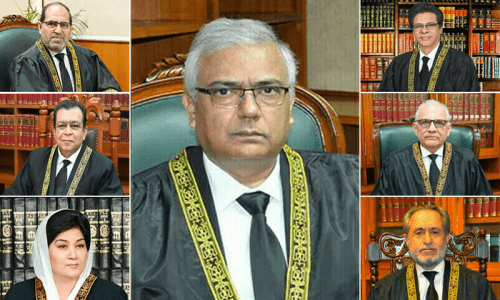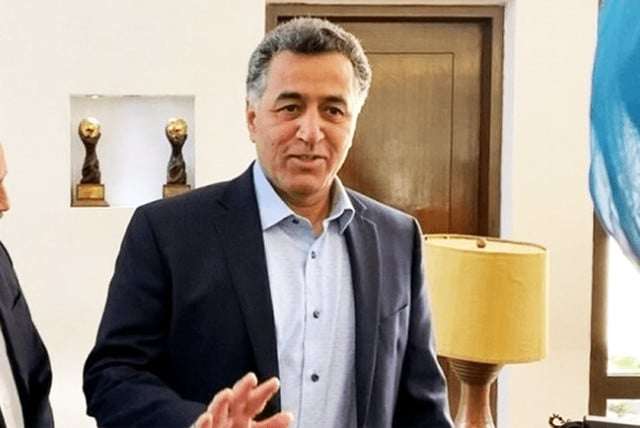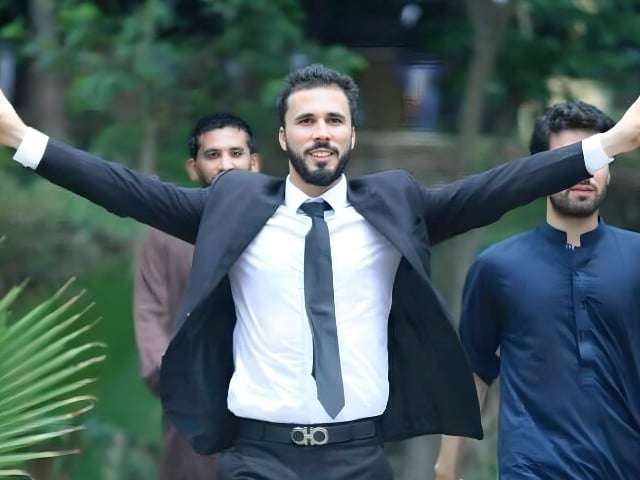On Tuesday, the Supreme Court of Pakistan’s constitutional bench dismissed the objections raised by the registrar’s office against a petition filed by former Prime Minister Imran Khan. The petition called for the formation of a judicial commission to investigate the events that unfolded on May 9, 2023, following his arrest.
Background of May 9 Protests
Nationwide protests erupted on May 9, 2023, after the arrest of Imran Khan in connection with a corruption case. The protests turned violent, with PTI supporters vandalizing military installations and government buildings. In the wake of these events, the government launched a widespread crackdown on the Pakistan Tehreek-e-Insaf (PTI) party, arresting thousands of party workers and leaders. Many of them are still facing serious charges in court, as the state seeks accountability for the destruction and chaos that ensued.
Imran Khan’s Petition and Allegations
Imran Khan, through his legal counsel, filed a petition requesting the Supreme Court to establish a judicial commission to investigate the circumstances surrounding the May 9 protests. In his petition, Imran alleged that the imposition of what he referred to as “undeclared” martial law, alongside the deployment of armed forces in various provinces like Punjab, Balochistan, Khyber Pakhtunkhwa, and Islamabad, was unconstitutional and unlawful. He further claimed that the actions taken under this supposed martial law were void and without effect.
Imran’s legal team also contended that the situation on May 9 could have been controlled without resorting to military intervention. They argued that there were enough personnel to manage the situation and that the deployment of the armed forces was unnecessary, suggesting that it was a deliberate and excess use of military authority.
The Supreme Court Hearing
A seven-member constitutional bench, headed by Justice Aminuddin Khan, resumed the hearing on Imran’s petition. Other members included Justices Jamal Khan Mandokhail, Naeem Akhtar Afghan, Muhammad Ali Mazhar, Hassan Azhar Rizvi, Musarrat Hilali, and Shahid Bilal Hassan. During the hearing, the bench addressed the objections raised by the registrar’s office, which had initially questioned the petition’s relevance to the public interest.
Registrar’s Objections Overruled
The registrar’s office had raised concerns that the petition did not involve a matter of public interest, as it focused on specific political issues surrounding PTI’s leadership. However, the constitutional bench dismissed these objections and ordered that the petition be numbered and scheduled for a hearing, allowing the legal proceedings to move forward.
Imran’s lawyer, Hamid Khan, reiterated that it had been over a year since the events of May 9, and the country deserved to know what happened. He argued that the imposition of what he termed an “undeclared martial law” was unconstitutional, with the military being deployed at a time of civilian unrest without proper legal justification.
Response from the Bench
During the hearing, Justices Hilali and Mazhar responded to the petitioner’s claims. Justice Hilali noted that the military’s involvement was sanctioned under Article 245 of the Constitution, which allows the army to be called in to support the civilian government in situations of unrest. She pointed out that the army’s presence during the May 9 protests was not indicative of martial law but rather the lawful application of constitutional provisions.
Justice Mazhar emphasized that the army’s deployment was a constitutional response to an emergency, with the aim of maintaining law and order in the face of widespread violence. He also asked the petitioners to substantiate their claims that the military’s intervention had exceeded its jurisdiction.
The Importance of Judicial Transparency
While addressing the petition, Justice Mandokhail questioned why Imran had not approached the high courts for redress. Imran’s lawyer explained that the matter was national in scope and therefore needed to be addressed by the Supreme Court. He also emphasized the importance of transparency in investigating the events of May 9, as it had led to widespread arrests and ongoing legal challenges for PTI leaders and workers.
Justice Hilali pointed out that even if a judicial commission was formed, its role would be limited to assigning responsibility for the events. She clarified that the commission’s findings would not affect the ongoing criminal cases against individuals implicated in the May 9 protests.
Status of Imran’s Case
As the hearing progressed, it became evident that the legal journey for Imran’s petition was far from over. The constitutional bench indicated that it would review the petition’s merits at a later stage, after the procedural objections had been resolved.
Meanwhile, the political climate in Pakistan remained tense, as the PTI continued to push for the release of political prisoners and the establishment of a transparent investigation into the events of May 9. Imran Khan has also called for a five-member negotiating team to address these issues with the government.
Plea to Transfer Imran to KP Jail Rejected
In a related development, the bench also dismissed a petition filed by a citizen, Qayyum Khan, who requested the transfer of Imran Khan from Adiala Jail to a prison in Khyber Pakhtunkhwa. Justice Mazhar and Justice Mandokhail remarked that the decision regarding Imran’s imprisonment should be made by his family or Imran himself, not a third-party petition.
Key Takeaways
- Judicial Investigation: The Supreme Court has dismissed objections to Imran Khan’s petition seeking a judicial commission to investigate the May 9 events.
- Military’s Role: The court examined the deployment of military forces under Article 245 and clarified its legal basis.
- Legal Proceedings for PTI: The ongoing cases against PTI leaders, including Imran Khan, remain central to Pakistan’s political landscape.
- Political Negotiations: Imran’s team has formed a committee to negotiate with the government on the formation of the judicial commission and the release of political prisoners.
FAQs
1. What was the main issue Imran Khan’s petition addressed?
Imran Khan’s petition sought the formation of a judicial commission to investigate the events surrounding the May 9, 2023, protests and the deployment of military forces under what he termed “undeclared martial law.”
2. Why did the registrar’s office object to the petition?
The registrar’s office questioned whether the petition was a matter of public interest, raising concerns about the petition’s political nature.
3. What did the Supreme Court decide regarding the registrar’s objections?
The Supreme Court dismissed the objections and directed the registrar’s office to assign a number to the petition and schedule a hearing.
4. Why was the military involved in the May 9 protests?
The military was deployed under Article 245 of the Constitution to assist the civilian government in controlling widespread violence and unrest.
5. What will happen next in Imran Khan’s petition?
The petition will proceed for a hearing on its merits once the procedural objections have been resolved by the Supreme Court.
ALSO READ:
https://flarenews.pk/2024/12/10/china-investigates-nvidia-over-mellanox-deal/



